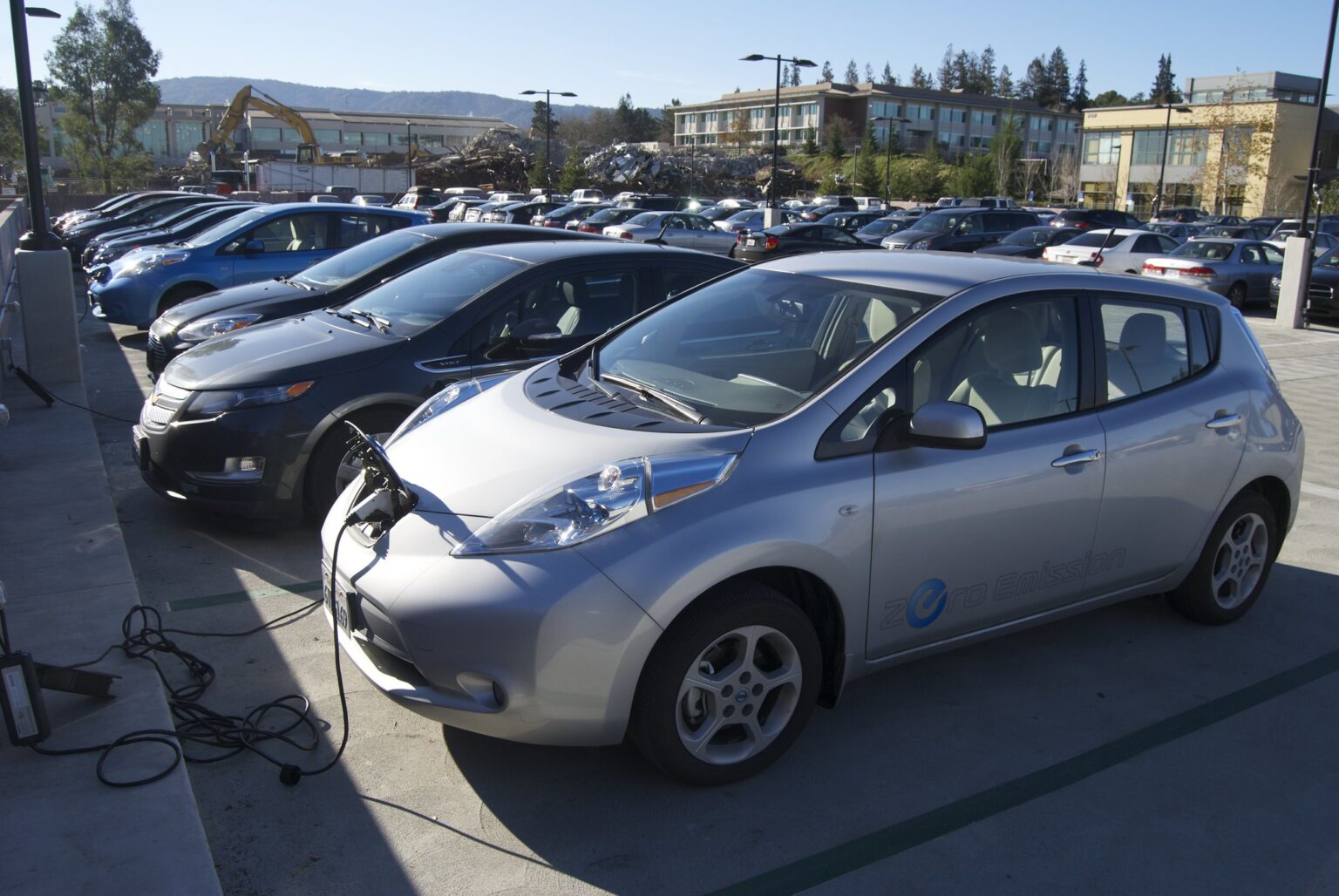Canada’s three largest newspapers ran opinion pieces attacking a planned phase-out of gas and diesel powered passenger vehicles within hours of the government’s official announcement that it would do so.
Canadian environment minister Steve Guilbeault outlined his government’s plan to gradually eliminate fossil fuel-powered cars and light trucks at a Toronto news conference held December 19.
Officially known as the Electric Vehicle Availability Standard, the new regulations give automakers until 2035 to adjust production so they only produce electrically powered vehicles, or otherwise face large fines.
The Toronto Star published the article, “Why North American electric vehicle mandates are destined to fail,” on the same day as Guilbeault’s announcement, which argues that Canadian consumers are not inclined to acquire EVs, partly due to cost.
This argument omits two key points: First, that automakers have been selling affordable EVs in British Columbia and Quebec, which have EV mandates in place. The new regulations will now ensure that all Canadians will have access to the affordable EVs that are currently shipped to British Columbia and Quebec. Second, the regulations aim to ensure 100 percent of new production passenger vehicles sold by 2035 will be EVs, essentially making the consumer preference argument moot since Canadians won’t have the option of buying gas-fueled vehicles.
If all new passenger vehicles available for sale in Canada in 12 years’ time are EVs, it really won’t matter whether consumers weren’t interested in buying EVs at any point in the past. Drivers may have not been interested in seatbelts 40 years ago when they first became mandatory in Canada, and that requirement has not had any impact on the industry today.
The article was written by Julio Mejia and Elmira Aliakbari, listed as analysts with the rightwing Fraser Institute, a libertarian think tank with ties to the Koch brothers-funded Atlas Network. Also listed as co-author is Jason Clemens, another Fraser Institute analyst. Along with other prominent Atlas Network affiliates, such as the Macdonald-Laurier Institute and the Montreal Economic Institute, the Fraser Institute is a leader in climate change denialism and it attacks any policies that would seek to mitigate climate change causes and effects. Most recently, the three groups went on the offensive mere hours after Canada announced a modest emissions cap on the nation’s oil and gas sector.
Regulations Aim to End Long EV Wait Times
The Toronto Star and the Canadian Broadcasting Corporation first published news of the planned regulations, citing unnamed government sources, on December 17. One of the unnamed sources told the Toronto Star the new regulations were designed specifically to address long wait times for electric vehicles (EV) in Canada, and that the regulations would help ensure Canadians have unfettered access to the global EV market.
In addition to the goal of having car companies produce 100 percent EVs by 2035, the same regulations have reference points for intermediate goals: 20 percent of all new car sales by 2026 should be EVs, and 60 percent by 2030. Canadian EVs would include both battery and plug-in vehicles, as well as hydrogen-powered ones.
“The Electric Vehicle Availability Standard is a holiday gift to the planet,” Nate Wallace, Clean Transportation program manager with Environmental Defence, said in a press statement.
“Canada will now join the ranks of leading jurisdictions such as the European Union, California, Quebec and British Columbia, in phasing out the sale of new gasoline cars at the pace required by global net zero objectives,” Wallace continued. He said the new regulation will ensure that the budget EV models coming to market aren’t just available overseas, but are readily available in Canada, too, to address domestic affordability challenges. “With significant taxpayer subsidies going to EV battery plants in Canada, this regulation ensures that Canadians will be the first in line to buy the cars we are paying to help make,” he added.
Équiterre, another prominent Canadian environmental organization, echoed Environmental Defence’s statement.
“Canada needs its own independent Electric Vehicle Availability Standard because we have more ambitious ZEV (Zero Emission Vehicle) adoption targets than the United States,” said Anne-Catherine Pilon, Équiterre’s transportation and mobility analyst, referring to zero emission vehicles.

“The flawed U.S. tailpipe rules have encouraged automakers to shift vehicle sales to increasingly larger and heavier gasoline SUVs and trucks and have significantly undermined the emissions benefits from greater fuel economy,” Pilon continued. She added that the new regulation ensures that automakers take responsibility for their impact on the planet, and gives everyone across Canada greater access to zero-emission vehicles, regardless of which province they live in.
Despite favorable reactions to the news from major Canadian environmental groups, Canada’s three largest circulation newspapers all ran pro-industry or anti-regulation opinion articles the same day as Guilbeault’s announcement.
The Toronto Star article’s other main argument is that insufficient current mineral and metal production means Canadian companies won’t be able to meet expected demand for EVs more than a decade from now. However, this, too, is specious reasoning: demand often drives supply, not the other way around. An auto market as large as Canada’s, with a planned transition to 100 percent electric over a 12-year period, provides a significant increase in the demand for EVs. As such, to keep automakers competitive in the Canadian market, they’ll be responsible for creating the supply chains necessary to meet this demand.
None of the Fraser Institute-affiliated authors of the article have any relevant professional or academic experience on the subject they wrote about. Mejía is listed as a junior policy analyst, and his background is in criminology, criminal justice policy, and government and international affairs. Aliakbari is listed as an analyst in the Toronto Star article, though her Fraser Institute profile page indicates she is in fact the institute’s director of Natural Resource Studies.
Aliakbari was formerly the director of Research, Energy, Ecology, and Prosperity with the Frontier Center for Public Policy, another Atlas Network affiliated think tank that advocates for the oil and gas industry. Aliakbari notes the publication of her research in the journal Energy Economics, which was co-authored by the well-known climate change denier Ross McKitrick, a frequent collaborator.
Curiously, the article’s third co-author, Jason Clemens, was only listed as an analyst when he is in fact the executive vice president of the Fraser Institute and the president of the Fraser Institute Foundation. Clemens’ academic background is in economics though he has spent much of his career working for the Fraser Institute as well as the Macdonald-Laurier Institute, where he was the director of research and managing editor. Clemens has also worked for the Pacific Research Institute (PRI), which has received considerable funding from the Koch Brothers, the Scaife Foundation, and from oil majors like ExxonMobil. PRI has historically maintained a climate science denier position, particularly with regards to any and all forms of government or inter-government policies, projects, or proposals.
The Toronto Star article did not disclose these connections.
EV Prices to Rise?
The Globe and Mail, Canada’s national “newspaper of record,” published Ashley Nunes’ article, “Dear Ottawa: Mandating electric-vehicle sales is a bad idea,” nearly the same time as the Toronto Star’s op-ed.

Nunes was listed on The Globe and Mail’s website as director for federal policy, climate and energy at the Breakthrough Institute and a senior research associate at Harvard Law School.
The Breakthrough Institute is known for some climate science denier affiliates. Steven F. Hayward, a conservative writer and climate denier, is a senior fellow with PRI and a resident scholar with the Breakthrough Institute. As previously reported by DeSmog, the Breakthrough Institute was co-founded by Michael Shellenberger, who this year joined the advisory board of Jordan Peterson’s Alliance for Responsible Citizenship (ARC), an international climate change denial organization with ties to the far-right.
Nunes makes similar arguments to those offered by the trio of Fraser Institute authors, stating there is a scarcity of minerals and metals to make EVs and current industry demand is lacking. Nunes also argues that costs for EVs are currently high. But unlike other technologies (whose prices go down as the technology becomes more readily available, and increased demand leads to higher production volumes), Nunes sees a worrying trend of EV prices going up.
Nunes’ argument is challenged on two fronts: First, a spate of articles during 2023, from sources including Forbes, CNBC, Yahoo News, and the Natural Resources Defense Council (NRDC), indicate there’s been a significant decline in the price of both new and used EVs. Second, the new regulations will specifically address affordability by opening the Canadian market to less costly EVs currently being sold exclusively to nations with established EV mandates.
EV Mandate Called ‘Heavy Handed’
The day after the government’s EV mandate announcement, The Globe and Mail ran a second commentary critical of the new regulations, this time by the Macdonald-Laurier Institute’s director of energy, natural resources and environment, Heather Exner-Pirot. Exner-Pirot described the regulations as “heavy handed” and a “quota.”
However, the new regulations don’t enforce any kind of quota, as they are intended to completely phase out fossil fuel-powered vehicles by ensuring all new production vehicles sold in Canada are electric. “Heavy handed” is similarly up for debate, given the government has provided 12 years for industry to respond to new regulations. Exner-Pirot’s argument dives into familiar territory, arguing EVs are too expensive for the average Canadian, though for a representative of a think tank ostensibly dedicated to the study of Canada, it’s a mystery why she can’t find any useful data from either British Columbia or Quebec—two Canadian provinces with EV mandates—to buttress her argument.
Rather, Exner-Pirot points to Norway, which she argues subsidizes the purchase of electric vehicles with payments from that nation’s massive oil and gas royalties. She does not mention Canada’s lavish subsidies to its own oil and gas sector, or how those subsidies could be redirected to support buying EVs.
Exner-Pirot then continues with arguments against new government regulations because she believes neither the technology is suitable for Canadian climatic and geographic conditions (and apparently won’t improve within the next dozen years), and that there also won’t be any development in sustainable energy or related charging infrastructure. Neither are likely, or even logical, assumptions.
Exner-Pirot concludes by insinuating the new regulations are akin to command economics, though in this case she seems to be using the term incorrectly. In no part do the current regulations plan production or prices. It’s simply another set of regulations that are trying to get industry to respond to the needs of the general public based on evidence and expert analysis. The federal government’s new regulations are far more similar to consumer protection laws, such as those that mandate the inclusion of seat belts or prohibit the use of asbestos, than they are to any of, for example, Stalin’s five-year plans.
DeSmog reached out to the Macdonald-Laurier Institute, the Fraser Institute, and Ashley Nunes with questions about their articles, but none responded by press time.
New Regulations Are ‘Bananas’
Canada’s National Post, flagship newspaper of the Postmedia chain, also ran several opinion articles critical of the new regulations, though these were from regular columnists. Postmedia newspapers tend to focus on the opinions of conservative pundits and politicians.
Don Braid’s December 19th column, turned to Alberta Premier Danielle Smith for commentary on the proposed EV regulations. Smith recently issued a provincial moratorium on new solar and wind power development in the province. In Braid’s column, she claimed the regulations were “bananas,” unrealistic, and amounted to “environmental extremism.” Smith’s beliefs about the impracticality of energy transition have been well-documented by DeSmog, which recently ran an article that challenged her public statements about the reality of transitioning off fossil fuels. Experts have described her public statements as “ideologically motivated” misinformation.
Many Canadian publications ran op-eds written by free-market fundamentalists and fossil fuel advocates who were critical of the Trudeau administration’s new regulations. But there didn’t seem to be any commentary from environmentalists. While the groups Environmental Defence and Équiterre were happy with the announcement, they also advocated that the government should do more. For example, they said in a joint statement that given current market trends, Canada is already likely to sail past the 20 percent ZEV sales target in 2026, and the new inclusion of ‘early action credits’ (EACs) was completely unnecessary and serves only to weaken the regulation in the early years.
“Looking to the future, we hope that this progress on zero-emission vehicles also leads to similar ambition in reducing emissions through shifting travel to public and active transportation,” the joint statement continued. “While this regulation will play an important role in accelerating the transition to electric vehicles, it is still important to remember that the decarbonization of the transportation sector must also focus on the importance of reducing the number and the size of vehicles on our roads.”
Subscribe to our newsletter
Stay up to date with DeSmog news and alerts







